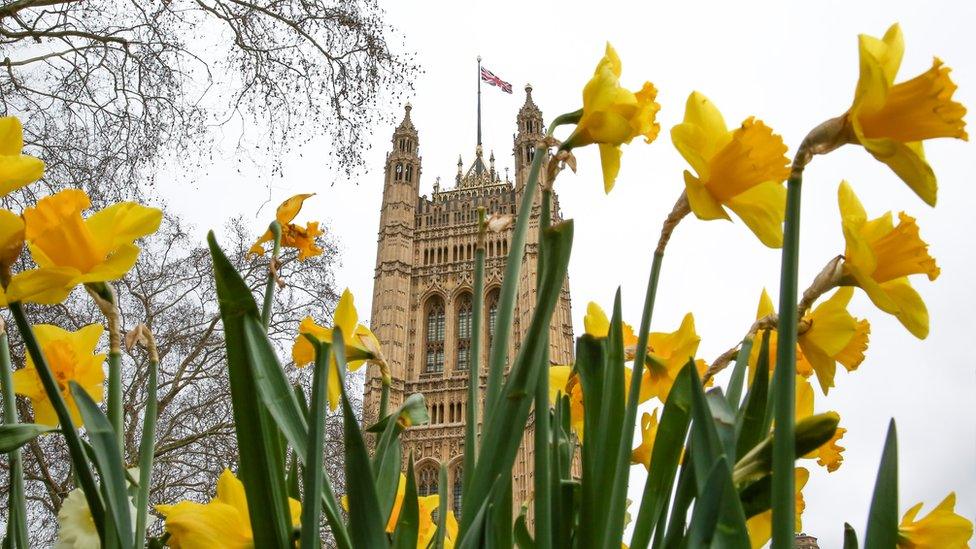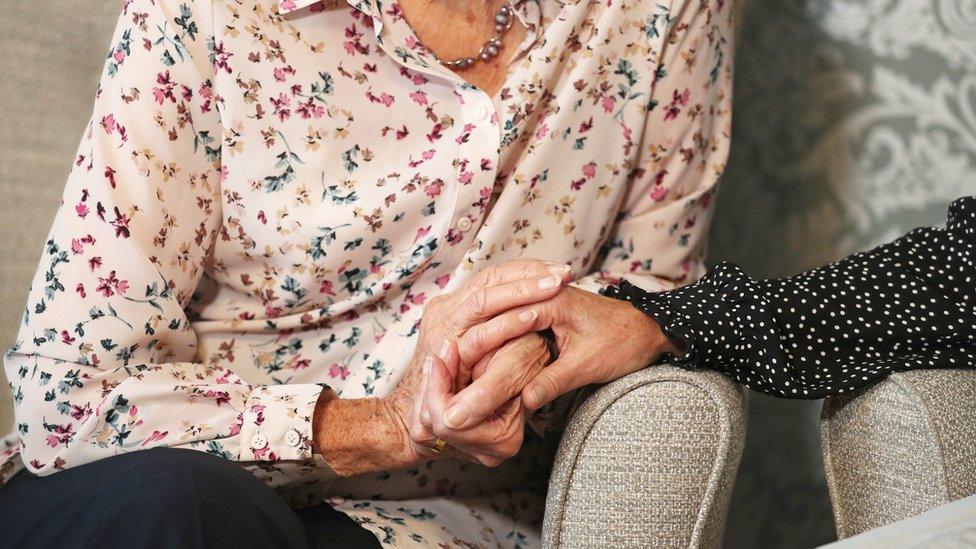What's happening in Parliament next week?
- Published

What's made the last six years in Parliament rather strange is that one big over-riding issue has often crowded out the normal stuff of politics.
First it was Brexit, then it was Covid, now it's Ukraine.
The effect of this is that much of the oomph is taken out of what would normally be pretty big debates - and even very serious issues seem to be rather small beer, by comparison.
It's true in the coming week, when there is plenty of really important legislative action going on under the shadow of events in Ukraine.
The main Ukraine-related action will be the continuing stream of statements from ministers and urgent questions from opposition parties and backbenchers on issues like the handling of refugees and the sanctioning of oligarchs.
There's also the rushing-through of the Economic Crime Bill, with peers debating the detail on Monday night, and any amendments going straight across to the Commons for immediate consideration by MPs (it might be Tuesday if the Lords debate runs impossibly late).
An alliance of opposition peers is gearing up to tighten various deadlines and details within the bill, and compromises may well be negotiated behind the scenes as the debate continues.
But there is a possibility the government may end up trying to reverse some changes made in the Lords (where it does not have a majority, and often seems unable to mobilise its own troops), which could mean some awkward debates in the Commons.
Meanwhile, watch out for peers pushing through major changes to the Health and Care Bill on the "care cap" - the point at which the state picks up the tab for social care costs for individuals.
It is due to rise to £100,000 under government plans, but opposition parties argue that this is too high for people in worse-off areas, and for groups like adults with long-term disabilities who have never had the chance to build up savings or buy a house.
This could mean another awkward debate for the government, if it seeks to overturn those changes.

Taxpayer funding of social care costs has been a tricky issue for ministers in recent months
The bill is so widely drawn that it provides the scope for peers to range into other issues too.
Members of the Lords special select committee, which drew up proposals for a national plan for sport, have an ambitious proposal to move the sports budget from the Department for Digital Culture, Media and Sport, to the Office for Health Promotion to be based in the Department of Health.
They argue this would help the push to encourage people to become more fit and active. Leading the move is Conservative former health minister Lord Moynihan, who has considerable support behind him.
And given the government's difficulties in turning out Conservative peers in support of ministers, he might be successful.
Assisted dying amendment
Then there's the cunning amendment on assisted dying from Conservative former cabinet minister Lord Forsyth.
He's not proposing direct legalisation, but his amendment would require the government to produce a draft bill, to facilitate Commons and Lords debate, after years of seeing private members' bills on the issue blocked.
It's hard to gauge the chances of success, because any vote will be contested by two rather amorphous cross-party alliances of peers, rather than along the normal party lines.
But if the amendment is passed, it will set up a very interesting test of Commons opinion. The last Commons vote was on Rob Marris's private member's bill in 2015, since when there have been two general elections.
Legislative gridlock
Beyond individual bills, there's the continuing gridlock in the government's law-making programme.
There's some speculation now that ministers might be forced to drop some legislation to get the rest of it through before the end of the current parliamentary session, expected at the end of April.
There will certainly be a lot of early starts and late sittings in the Lords to get through the accumulated bills before them.
Finally, we're in the build-up to the chancellor's Spring Statement, expected the week after next.
At one point this would probably have been a pretty so-so event, but with the impact of the Ukraine crisis, Rishi Sunak will be under pressure to offer help to hard-pressed families with energy costs (a fuel duty freeze, anyone?) and to fund a major increase in defence spending.
Treasury questions on Tuesday will provide an appetiser, as MPs seek to probe his thinking.
